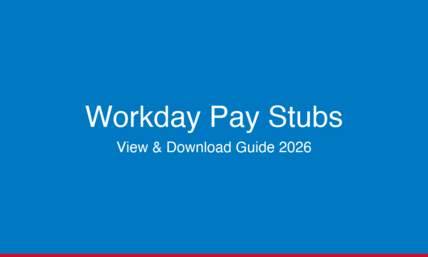When Are Business Taxes Due? All the Deadlines You Need To Know About
If you are running a business, whether it's big or small, there are some things you need to know about. You need to consider the practical aspects of your business. One of these things is your business taxes.
Business taxes are quite different from personal income taxes, which is why you need to do them right. From knowing when to generate needed tax forms like the W-2 for employees to making quarterly taxes, you need all the information. This could require you to know how to create a W2 form and when other forms need to be filed.
One of the big things that businesses struggle with is the business tax deadlines, as different federal taxes can have different due dates. So, when are business taxes due? Are they mostly around the same dates? Or do they roam? This is a critical question for all business entities, from sole proprietorships to C corporations.
In this article, we seek to explore when business taxes are due. You'll understand what you need to know about your business tax return deadlines.
Business Tax Deadline Dates and Which Taxes Are Due Then?
Tax deadlines are mainly due to the different tax types and payment schedules. This is because tax payments are collected throughout the entire tax year. It can also be due to the sheer amount of business taxes collected throughout the year. However, there is no need to fear, as most of these tax forms will not apply to you.
Business tax deadlines are often tailored to a person or business's specific situation and business structure. You need to know the tax returns and see if any truly apply to your business before adding them to a list of taxes owed that you need to pay.
The deadlines include:
January 15th:
This date is a tax deadline for payments of the estimated taxes. They're taxes due from an individual or business entity for the fourth quarter of the previous tax year. The individuals who need to complete the following tax forms are those who are filing income and self-employment taxes for owners. It is commonly known as a pass-through entity.
Pass-through business entities are those where the business income flows through the company directly to investors or owners. As such, the business's income is treated the same as that of the investor or owner. These include:
-
Sole proprietors
-
Partnerships
-
S corporations
Form 1040-ES is due on this date. It shows how much individuals pay in estimated income taxes. For corporations, they would have to use the Estimated Tax Worksheet in Publication 542. It is formerly known as Form 1120-W.
You can either send the Form 1040-ES by mail and pay the estimated taxes that way. You can also use the Electronic Federal Tax Payment System (EFTPS) or use IRS Direct Pay to pay online.
January 31st:
This is the filing deadline for sending W-2 forms to employees for the wages that were paid in the previous year. You can use a W2 maker online to create a W-2 form for employees. To even make record-keeping easier, our 123 paystub method allows you to generate and download paystubs for your employees. It only takes 3 easy steps, and you’re done in a couple of minutes.
It is also the due date to send 1099s to recipients of your business's services. If it’s on a weekend, wait until the next business day. The IRS forms you need to send off are as follows:
-
Form W-2
-
Form 1099-MISC. (For miscellaneous tax payments, such as royalties and rent), Form 1099-INT. (For interest tax payments)
-
Form 1099-DIV. (For dividend tax payments)
-
Form 1099-NEC. (To send to any independent contractors that you paid $600 or more to, throughout the previous year)
-
Form 941
-
Form 940
The 941 and the 940 are slightly different from the rest, as they report on different things. The Form 941 is for reporting Social Security and Medicare taxes, income tax, and Medicare taxes. These are withheld taxes from your employees' paychecks in the fourth quarter of the previous year. The Form 940 reports on the annual Federal Unemployment Tax Act tax liability for yourself. Unemployment taxes are usually paid only by employers.
February 10
Form 940 is normally due January 31, but if you deposited all FUTA taxes timely, you have until this deadline to file.
March 1st:
This is the due date for sending copies of your 1099s directly to the IRS. This date is only for paper copies, as electronic copies are not sent until later. When you send off those 1099s, make sure to attach a Form 1096 as well.
March 15th:
This business tax deadline is for LLCs and partnerships to report on and send a Form 1065. It is also for S corporations to report on and send a Form 1120-S for the previous calendar year. If the company is a pass-through business entity, then this is also a different deadline. It is the deadline for partners and shareholders to send a copy of a Schedule K-1. This shows their share of the entity's losses and incomes.
You may not be able to complete these income tax returns in the given time. Then, you can fill out and send a Form 7004 by this date, requesting a 6-month tax extension.
For LLCs or C corporations that wish to be taxed as an S corporation, you need to send in the Form 2553. Don't send the Form 2553 by this deadline or after. If you miss the date, your company won't be taxed as an S corporation until the following tax year.
March 31st:
Most electronic information returns must be filed with the IRS by March 31. This includes forms, such as Form 1099-MISC, Form 1099-INT, Form 1099-DIV, and other 1099 series forms when filed electronically.
April 15th:
The forms due are: Form 1040, Form 1120, Form 4868, Form 7004, Form 1040-ES, and Form 1120-W.
Individuals have to file a Form 1040. This Form reports your individual income tax return, and C corporations have to file a Form 1120. You can request a six-month tax extension on this date. You just need to file the Form 4868 for individuals and the Form 7004 for corporations.
However, this doesn't extend to paying the tax you owe at the time. If you require an extension, estimate how much tax liability you have for the previous year. You'll then make your estimated taxes by this date.
The 15th day of April is also the date for the first quarterly estimated tax, which is the income and self-employment taxes. They are for sole proprietors and pass-through business owners. These quarterly estimated taxes can be sent with a Form 1040-ES to the IRS. You can also send a tax payment online. C corporations of that tax year must also make a first-quarter estimated income tax payment using a Form 1120-W. It estimates the tax and payment.
April 30th:
The form due is Form 941. Much like the Form 941 before, this is used to report Social Security tax, income tax, and Medicare taxes. They are withheld taxes from your employees' paychecks, but for the first quarter of this tax year. Like before, if you have done everything correctly, then you have until May 10 to send this Form.
June 15th:
The forms due are: Form 1040-ES and Form 1120-W.
This is the date when the second quarter estimated incomes and self-employment tax payments are due. It is for sole proprietors and pass-through business owners. You can send a check with a Form 1040-ES to the IRS. You can also choose to make a payment online for these two instances.
C corporations of that tax year must also make a second-quarter estimated income tax payment using a Form 1120-W.
July 31st:
The forms due are: Form 941, Form 5500, and Form 5500-EZ.
July 31 is the deadline for the Form 941 for the second quarter of a tax year. It reports Social Security tax, income tax, and Medicare taxes that have been withheld from your employees' paychecks. If you have done everything correctly, then you have until August 10 to send this Form.
Also, if your company or you, as a business owner, implement an employee benefit plan, this is the deadline to file Form 5500 or a Form 5500-EZ. An employee benefit plan can be a stock bonus plan or a pension, and this deadline depends on the previous calendar year. If you owe more than $500 in FUTA tax deposits for the previous June, then this is the deadline to pay.
September 15th:
The forms due are: Form 1065, Form 1120-S, Form 1040-ES, and Form 1120-W.
This is the date when the third quarter estimated incomes and self-employment tax payments are due. It is for sole proprietors and pass-through business owners. C corporations of that tax year must also make a third-quarter estimated income tax payment using a Form 1120-W.
Any pass-through business entity that requested a six-month tax extension on March 15 has now reached the end of its extension. Therefore, they must file a Form 1065 or a Form 1120-S. They must also supply a Schedule K-1 to shareholders and partners in the business.
October 15th:
The forms due are: Form 1040 and Form 1120.
Any individual or C corporation that requested a six-month tax extension on April 15 has now reached the end of their extension. They must file taxes by submitting a Form 1040 or a Form 1120.
November 1st:
The due form is Form 941. The Form 941 deadline is for the third quarter of this tax year. This is used to report Social Security tax, income tax, and Medicare taxes. If you have done everything correctly, then you have until November 10 to send this Form.
December 15th:
The Form due is: Form 1120-W.
C corporations of that tax year must also make a fourth-quarter estimated income tax payment using a Form 1120-W.
Other Important Dates To Note

There's a deadline for those depositing Social Security, withheld income tax, and Medicare tax payments on a monthly basis. It is usually due on the 15th day of every month throughout the year.
Additionally, if your business operates on a fiscal year instead of a calendar year, your business tax return deadlines will shift. For example, a corporation's tax year ending on June 30 would have a corporate tax return deadline in September. It's also crucial to remember state tax deadlines for sales taxes, property taxes, and franchise taxes. All of these have their own due dates and can vary significantly. To know more about your business taxes, consult a tax professional.
In Summary
Business taxes can seem unbearably daunting, especially if you're not trained in accounting or knowledgeable about tax filing in general. However, with this list of important tax deadlines, we hope that business tax compliance is just a little bit more manageable for you and your company. Remember, understanding these tax deadlines for businesses is the first step toward maintaining good standing and potentially identifying tax savings.
Our pay stubs generator enables you to create pay stubs in a simple and user-friendly manner, which can assist with tax filing and managing payroll taxes.















